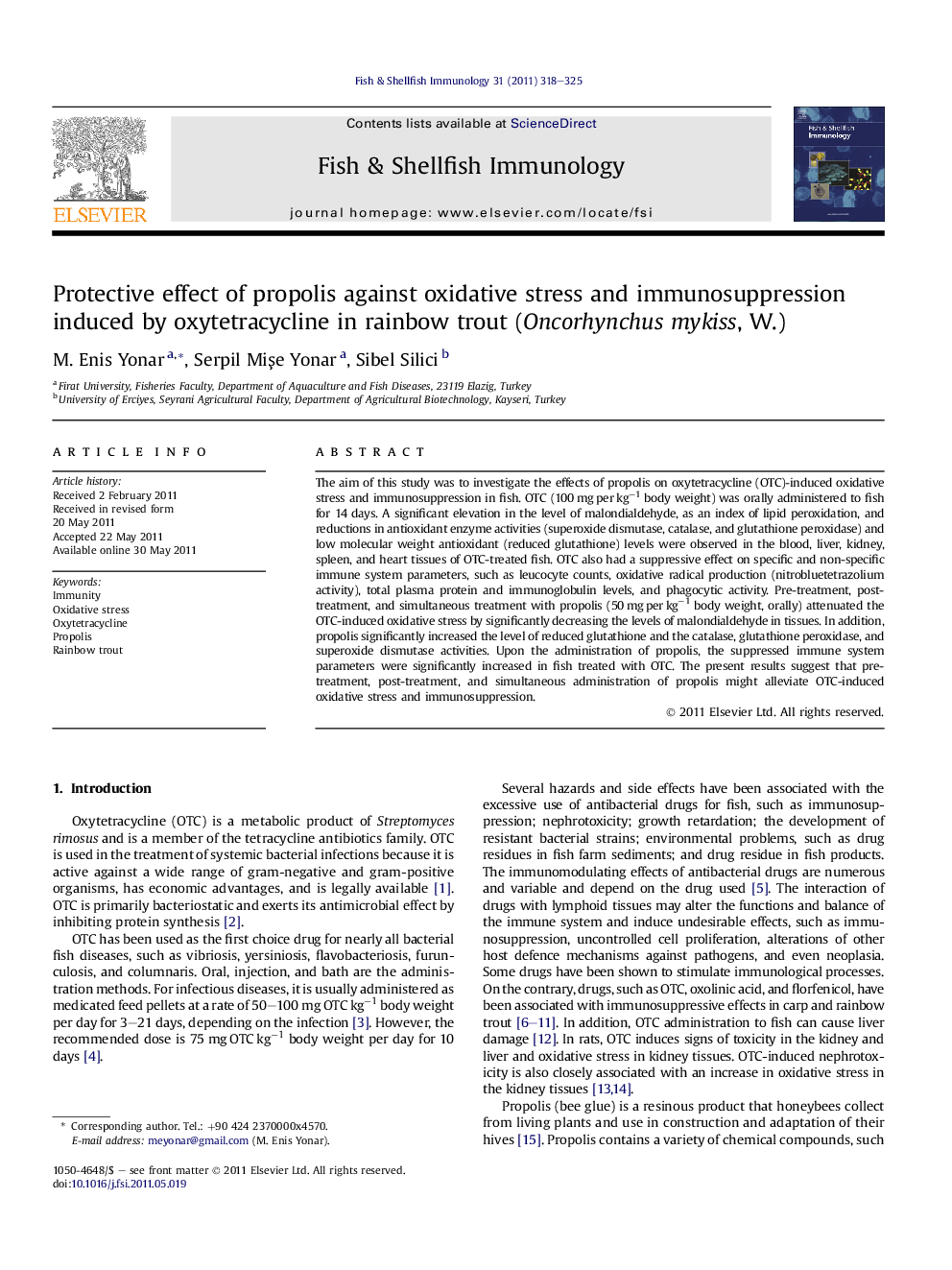| Article ID | Journal | Published Year | Pages | File Type |
|---|---|---|---|---|
| 2432243 | Fish & Shellfish Immunology | 2011 | 8 Pages |
The aim of this study was to investigate the effects of propolis on oxytetracycline (OTC)-induced oxidative stress and immunosuppression in fish. OTC (100 mg per kg−1 body weight) was orally administered to fish for 14 days. A significant elevation in the level of malondialdehyde, as an index of lipid peroxidation, and reductions in antioxidant enzyme activities (superoxide dismutase, catalase, and glutathione peroxidase) and low molecular weight antioxidant (reduced glutathione) levels were observed in the blood, liver, kidney, spleen, and heart tissues of OTC-treated fish. OTC also had a suppressive effect on specific and non-specific immune system parameters, such as leucocyte counts, oxidative radical production (nitrobluetetrazolium activity), total plasma protein and immunoglobulin levels, and phagocytic activity. Pre-treatment, post-treatment, and simultaneous treatment with propolis (50 mg per kg−1 body weight, orally) attenuated the OTC-induced oxidative stress by significantly decreasing the levels of malondialdehyde in tissues. In addition, propolis significantly increased the level of reduced glutathione and the catalase, glutathione peroxidase, and superoxide dismutase activities. Upon the administration of propolis, the suppressed immune system parameters were significantly increased in fish treated with OTC. The present results suggest that pre-treatment, post-treatment, and simultaneous administration of propolis might alleviate OTC-induced oxidative stress and immunosuppression.
► Oxytetracycline caused oxidative stress. ► Oxytetracycline had a suppressive effect on the specific and non-specific immune system of the fish. ► Treatment with propolis provided a protective effect against oxidative stress and immunosuppression induced by oxytetracycline.
